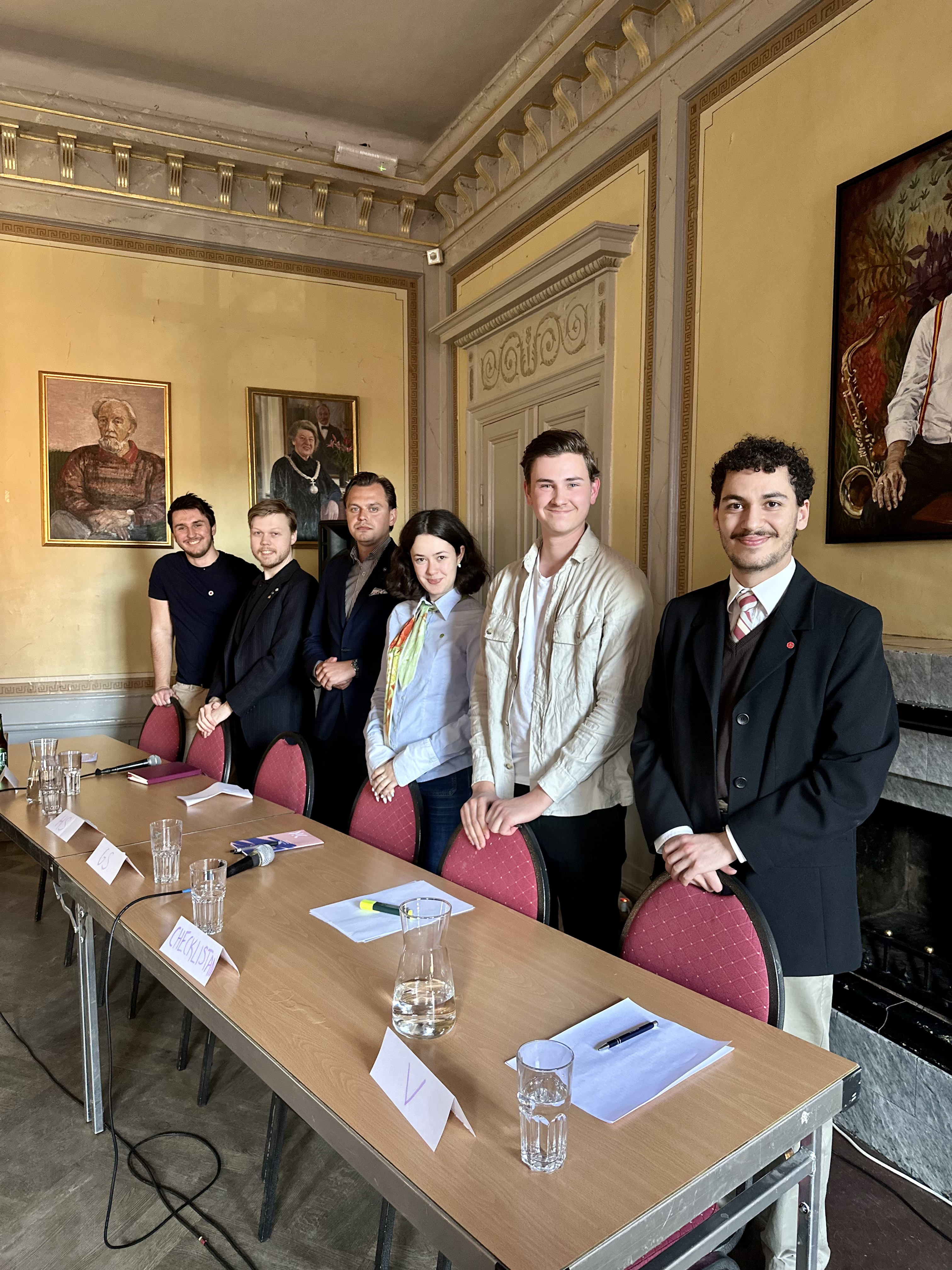Running in the student union election
.png)
Register union party
In order to stand in the student union elections, the student union party must register as a student union party. Existing parties must also re-register.
Register!Register candidate list
Once the student union party has been registered and approved, each student union party must register a list of candidates by March 1. The list must specify which candidates the party wishes to nominate and how the party ranks the candidates. The list must include each candidate's name, personal identification number, telephone number, email address, and degree title. In accordance with the instructions of the Election Committee, party representatives must submit written consent from each candidate on the list by March 1 at the latest.
Important dates
Last day to register student union parties
This is done via a form on the Uppsala Student Union website. Registration opens in mid-December.
Last day to become a member in order to run for office and submit a list of candidates
It is completely free to become a member of Uppsala Student Union.
Election opener
Student parties begin campaigning and US begins campaigning for voter turnout. Ergo publishes reports on the parties and US shares information about the parties on social media.
The student union elections are starting!
All members will receive an email with a link to the vote.
Tips
Kårvalsdebatt
Ahead of the student union elections, Uppsala Student Union organizes Uppsala Student Union debate. The debate is led by a moderator and lasts for approximately one hour. The general public is invited to attend.
Details regarding the debate may change from year to year.
Election Watch
On the last day of the election period, Uppsala Student Union all candidate student union parties and student union members to an election night party. The location and format vary from year to year.
